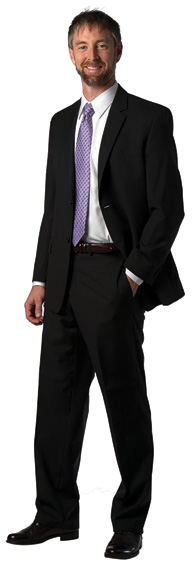Matthew Eshbaugh-Soha
How can you make a political difference?
September 30, 2012

Matthew Eshbaugh-Soha (Photo by Gary Payne)
How can you make a political difference?
Matthew Eshbaugh-Soha, associate professor of political science, teaches courses on the U.S. government, the American presidency, public policy, and media and politics. With 2012 being an election year, he says there is no better time to stay informed and get involved with civic organizations and local, state and national politics.
"Some people don't participate in politics and government because they think they can't make a difference," Eshbaugh-Soha says. "One may not be able to change the world in one election, letter or city council meeting, but active involvement can lead to gradual change."
Participating in politics has some inherent value, he says, offering these tips to citizens:
Stay informed
- Read a national newspaper, watch the news on television or visit political party and candidate websites to learn about presidential, state and local elections.
- Although it is much easier to receive news about national politics than local politics, a local newspaper, even just the front page, can provide you with information about important issues facing your community.
- Watch your city webpages for the time and topics of city council and school board meetings.
Advocate for change
- Write your member of Congress or state legislator, or join an interest group.
- Attend a city council meeting to inform council members about what is needed in the community, such as a speed bump on a neighborhood street or repair of potholes. Request agenda space for your concern at a meeting that is not overly busy.
- Answer calls from city council members, state legislators and members of Congress when they request feedback on policy ideas.
Vote
- Whether in presidential, state or local elections, your vote counts!
- When you vote in elections, you're ensuring your voice is heard when government makes policy decisions.
- With voter participation rates in local elections rarely broaching 10 percent, your impact on these elections will be greater than at any other level.